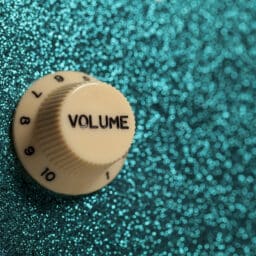How Ear Infections Can Affect Your Hearing — And What You Can Do About It

If you or your child has ever had an ear infection, you know how uncomfortable they can be. But beyond the pain and pressure, ear infections can sometimes affect hearing. Most of the time, this hearing loss is temporary—and with the right care, you can protect your hearing for the long term. How Can Ear…
How Are Hearing Aid Non-Use and Auditory Depravation Related

Many people view hearing loss as a static condition, but it can actually progress over time due to factors like aging, genetics and poor ear care. While a single exposure to loud noise won’t necessarily continue damaging your hearing, ongoing issues can contribute to further hearing loss. A common concern is that not wearing hearing…
Essential Hearing Aid Habits: When To Wear and Remove Your Devices

When you first get a new device, whether a phone, laptop or hearing aid, you have to take time to learn how to use and care for it. With hearing aids, knowing when to wear and remove your devices is an essential part of this learning process. Let’s explore three everyday scenarios—sleeping, showering and exercising—and…
Understanding the Emotional Stages of Hearing Loss Acceptance

If you or a loved one has hearing loss, understanding the emotional stages that come with it can make the treatment process feel less overwhelming. Let’s explore how you can move forward with confidence. The Road to Diagnosis and Treatment If you suspect you have hearing difficulties, a hearing specialist can guide you through a…
Newer Hearing Aids Make Hearing Easy

As we move throughout the day, the noise level we experience changes. For example, the volume at [city] library is a lot different than when you’re out to dinner at a busy restaurant. If you use hearing aids, you need your device to account for these changes in noise levels. Research has shown that hearing…
How To Make Sure Your Hearing Aids Stay in Place

There are several things to adjust to when you start wearing hearing aids—including making sure they stay in place. While they should usually remain in your ears without an issue, poor fit, moisture and sweat or movement may cause them to fall out. At , we recommend the following tips to help your devices remain…
How Tinnitus Impacts Musicians

If you are a musician dealing with tinnitus, you are not alone. Though studies vary, it’s estimated that anywhere between 30% and 50% of music professionals have tinnitus, or ringing in the ears. This condition can be particularly bothersome for musicians since they are already heavily in tune with sounds and frequencies. How Musicians Protect…
Hearing Aids & Babies: The First 6 Months

In 2000, the Early Hearing Detection and Intervention (EHDI) program was established to ensure children with hearing loss receive the support they need as early as possible. This initiative focuses on the early identification of hearing issues and provides a structured timeline for intervention, including: According to the Centers for Disease Control and Prevention (CDC),…
Keep your Hearing Aids in the Best Shape This Winter

Along with the holidays, winter is also the season of chilly weather. As the temperatures become cooler outside, consider the following steps to protect your hearing devices. Make Sure They Stay Dry Winter is a damper season, and moisture can damage your hearing aids. Prolonged exposure to water or condensation can result in: Keep Your…
Why is My Hearing Aid Whistling?

If you wear hearing aids, you might have encountered an unexpected whistling sound from time to time. This noise, known as “feedback,” can occur for several reasons. Feedback can happen while inserting or removing your hearing aids or, less conveniently, during times when you’re concentrating. While occasional feedback is usually harmless, frequent whistling could indicate…